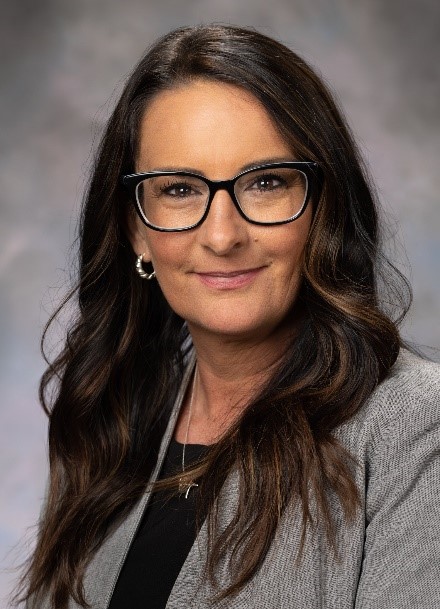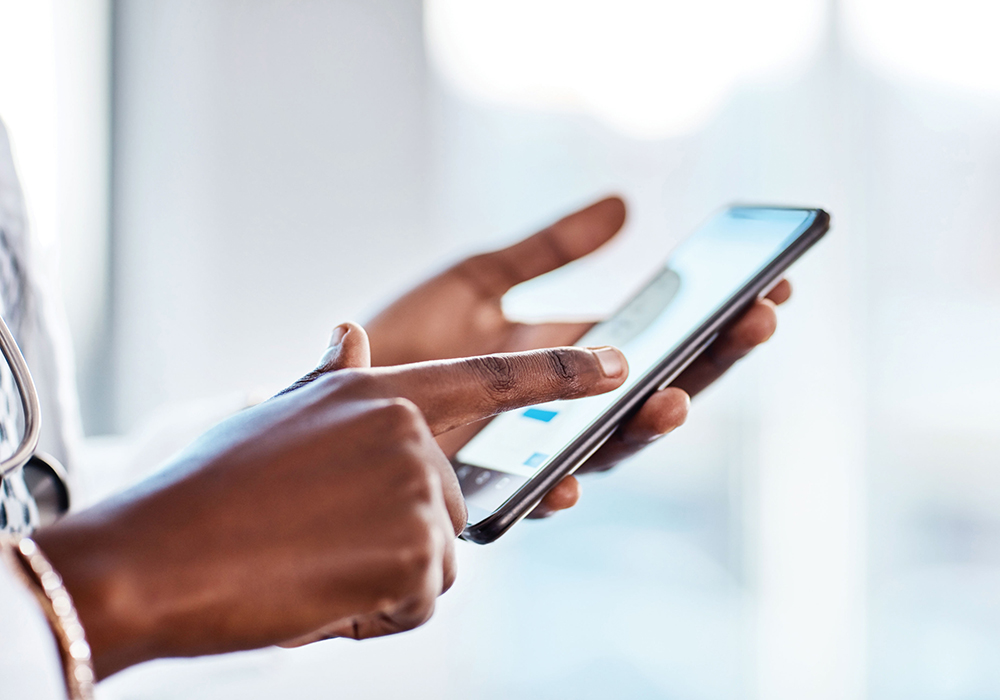A nurse’s perspective in the creation of health technology tools to deliver quality patient care is important for the digital era we provide care in. Advancements can be as complex as artificial intelligence in big institutions or as simple as a mobile app for personal smartphones. I’ve been working with other healthcare providers to develop the latter to improve care for pediatric patients with cancer.

App Builds a Better Understanding of Children’s Cancer Symptom Experience
My first mobile app allows children with cancer to record their symptom experience in an interactive, fun way by communicating with their virtual friend Formy (pronounced “for me”). The app, funded by Johnson & Johnson, was originally designed for nonverbal children by Vicki von Sadovsky, PhD, RN, FAAN, with our Research Innovation team. I built on Sandovsky’s concept to help children with cancer better express their symptoms. My team was able to adapt the app, evolve its features, and conduct overall testing using our 2020 award from ONS’s collaboration with the Johnson & Johnson Nurses Innovate QuickFire Challenge in Oncology.
Formy is an interactive character that greets users and vividly and realistically depicts possible symptoms that children can experience following cancer therapy. Children tell Formy how they are feeling by choosing the symptom(s) they are feeling, how intense the feeling is, where they were when the symptom occurred (e.g., at school, home, etc.), and their distress level. They can also share their overall feelings, such as nervousness or happiness.
We have not yet published our pilot testing findings, but we discovered that parents were surprised that their child was experiencing symptoms they didn’t know about. It’s encouraging to know the app could possibly help providers and parents uncover what children may not be communicating.
The app can also help healthcare providers understand how the symptom experience affects young patients’ daily lives, even at a distance. Formy gives children a chance to openly communicate their symptoms and know that adults are listening. We are excited to embark on our next phase of testing and a launch date in the near future.
Digital Interventions Support Children and Families Post–Bone Marrow Transplantation
To help children and caregivers navigate challenges after bone marrow transplantation (BMT) and advance adherence, our team developed another app called BMT4me. The app has evolved greatly thanks to information and feedback from multiple stakeholders.
We’ve enhanced the app to include features such as symptom tracking, medication reminders, refill reminders, a journal that allows patients to upload photos, and a weekly summary to share with healthcare providers. The app also has an image-to-text feature, which allows users to automatically record their medications by taking a picture of the bottles, eliminating some risks and potentially improving understanding for families with limited English proficiency.
Development was such a fun learning experience. Some features we hit right on the mark, but others, such as refill reminders, were included after input from patients and their families. Our development process included numerous revisions before we began our initial testing.
We’re fortunate that the response has been overwhelmingly positive. Usability scores are above the considered average, which is encouraging, but there is always room for improvement. It’s important to us that we create a user-friendly tool to help patients, caregivers, and healthcare providers.
Thanks to funding from the Oncology Nursing Foundation, we developed a prototype app and conducted focus groups with healthcare providers, nurses, and social workers. Group participants gave us valuable feedback for additional revisions and initial testing.
But the Foundation’s funding was able to take us even farther. We collected preliminary data to present for a K99/R00 funding opportunity from the National Institute of Nursing Research (NINR), a five-year grant from the National Institutes of Health. With the NINR funding, we are currently studying the app’s initial efficacy in clinical practice and reaching for a launch date in the near future.
Working with the Foundation was helpful not only for conducting our initial study but also in planning for additional funding and advancement. Grant funding can accelerate technology for effective patient care, especially in pediatric patients. Our funding from ONS’s collaboration with the Johnson & Johnson Nurses Innovate QuickFire Challenge in Oncology and the Foundation allowed us to develop and share custom-made mobile apps to help clinicians, children with cancer, and caregivers.






